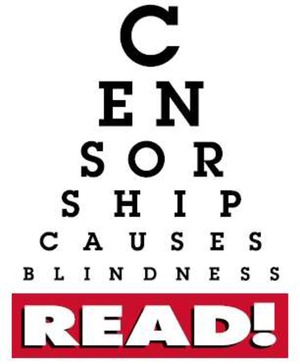 The 2020 election galvanized political talk among Apostolics, and with the growing consensus in the immediate aftermath that Joe Biden won the race, disbelief and disappointment pervaded much of the discussion. Many focused on debating the pros and cons, the likes and dislikes of the personalities involved, an exercise that obfuscated the critical elements of the election. We should have zeroed in on the platform that America voted into power. Take a look here PREAMBLE - Democrats and read between the lines. By this I mean that we must cull out the euphemisms and fanciful rhetoric of the platform and distill it into real life goals. When these goals of the party in power begin to shape our future, we will witness a fundamental change in this nation. There is a great similarity that this platform has with the story of Little Red Riding Hood when she encountered the big, bad wolf.
The 2020 election galvanized political talk among Apostolics, and with the growing consensus in the immediate aftermath that Joe Biden won the race, disbelief and disappointment pervaded much of the discussion. Many focused on debating the pros and cons, the likes and dislikes of the personalities involved, an exercise that obfuscated the critical elements of the election. We should have zeroed in on the platform that America voted into power. Take a look here PREAMBLE - Democrats and read between the lines. By this I mean that we must cull out the euphemisms and fanciful rhetoric of the platform and distill it into real life goals. When these goals of the party in power begin to shape our future, we will witness a fundamental change in this nation. There is a great similarity that this platform has with the story of Little Red Riding Hood when she encountered the big, bad wolf.
Little Red Riding Hood was greatly amazed to see how her grandmother looked in her nightclothes, and said to her, “Grandmother, what big arms you have!”
“All the better to hug you with, my dear.”
“Grandmother, what big legs you have!”
“All the better to run with, my child.”
“Grandmother, what big ears you have!”
“All the better to hear with, my child.”
“Grandmother, what big eyes you have!”
“All the better to see with, my child.”
“Grandmother, what big teeth you have got!”
“All the better to eat you up with.” And, saying these words, this wicked wolf fell upon Little Red Riding Hood, and ate her all up.
Interestingly, in Italy this story is called “The False Grandmother,” a fitting analogy to the Democrat’s platform. Regarding that platform, the seductive language conceals the teeth of the party, ready to eat up the traditions of our country and the freedoms guaranteed by the Bill of Rights.
The question now, however, is not about stopping or changing the outcome of the election. Rather, our challenge is the post-election posture most appropriate for Bible-believers. While we can continue to voice our opinions and vote our preferences when the opportunity arises, we must also soberly review our response to the present moment. Our Christian calling prevents us from pursuing a violent, destructive, and murderous pathway to resist our overlords. “The weapons of our warfare are not carnal …” In fact, physical resistance would be the easier response to the situation. Much more difficult will be the righteous course of action—that is inaction! Just because our government forbids us from following the dictates of our conscience does not mean that we must cease and desist being who we are. Our convictions do not change with the politics of the day. Yet, we must face this onslaught with an answer. In the vernacular of the day, what will this answer look like?
Are you ready to have your Christian witness and expressions to be labeled as hate speech?
Are you ready to be blackballed, put on an enemies list, prevented from holding a job, held back from a deserved promotion, or shunned in the public square?
Are you ready for the sneering, scorn, and derision?
Are you ready to be “uninvited” to gatherings, parties, weddings, celebrations, and events?
Are you ready for friends and even relatives to turn a cold shoulder to you?
Are you ready to be told to leave your neighborhood, resign from your positions, and dropped from committees and boards?
Are you ready to be denied services, put on hold indefinitely, or given the run-around for no apparent reason?
Are you ready to have your ideas proclaimed to be as poisonous as the Covid-19 virus?
Are you ready to be charged with breaking the law, slapped with excessive fines, jailed, or imprisoned?
Are you ready to have your licenses revoked, your businesses to be squeezed out of opportunities, or charged with endless lawsuits and impossible demands of zoning boards?
All these actions loom as possibilities in a new political climate. What will we do about it?
“And it came to pass, on the next day, that their rulers, elders, and scribes, as well as Annas the high priest, Caiaphas, John, and Alexander, and as many as were of the family of the high priest, were gathered together at Jerusalem. And when they had set them in the midst, they asked, “By what power or by what name have you done this?” Then Peter, filled with the Holy Spirit, said to them, “Rulers of the people and elders of Israel: If we this day are judged for a good deed done to a helpless man, by what means he has been made well, let it be known to you all, and to all the people of Israel, that by the name of Jesus Christ of Nazareth, whom you crucified, whom God raised from the dead, by Him this man stands here before you whole. This is the ‘stone which was rejected by you builders, which has become the chief cornerstone.’ Nor is there salvation in any other, for there is no other name under heaven given among men by which we must be saved.”
Now when they saw the boldness of Peter and John, and perceived that they were uneducated and untrained men, they marveled. And they realized that they had been with Jesus. And seeing the man who had been healed standing with them, they could say nothing against it. But when they had commanded them to go aside out of the council, they conferred among themselves, saying, “What shall we do to these men? For, indeed, that a notable miracle has been done through them is evident to all who dwell in Jerusalem, and we cannot deny it. But so that it spreads no further among the people, let us severely threaten them, that from now on they speak to no man in this name.” And they called them and commanded them not to speak at all nor teach in the name of Jesus. But Peter and John answered and said to them, “Whether it is right in the sight of God to listen to you more than to God, you judge. For we cannot but speak the things which we have seen and heard.” So when they had further threatened them, they let them go, finding no way of punishing them, because of the people, since they all glorified God for what had been done. For the man was over forty years old on whom this miracle of healing had been performed. Acts 4:5-22 (NKJV)
When persecution descended upon the primitive church, they did not respond with political action. No marches, no protests, no riots, no attempts to retaliate. They simply continued to do what their Christianity asked of them to do. They accepted the consequences of their actions. Amazingly, their passive response spurred the church on to unprecedented revival. They realized their vision through obedience to the Spirit of God rather than taking up arms against their enemy. They did not grow because of active resistance but because they faithfully executed God’s word. They endured the hostility of their government. The threats of the powers that be did not derail their determination to be the church! May our response be the same as the young men in the Book of Daniel. “Shadrach, Meshach, and Abednego answered King Nebuchadnezzar, “Your threat means nothing to us. If you throw us in the fire, the God we serve can rescue us from your roaring furnace and anything else you might cook up, O king. But even if he doesn’t, it wouldn’t make a bit of difference, O king. We still wouldn’t serve your gods or worship the gold statue you set up.” Daniel 3:16-18 (MSG)
Our Apostolic politics do not include rage against the government. That response may look like strength and power to the carnal mind, but it will not result in spiritual success. In these turbulent times, our greatest strength will be unwavering allegiance to our calling and election. We may take any legal course of action afforded us by our constitution to preserve our rights, but if those efforts prove unsuccessful, then our alternative is to stand strong in the power of the Holy Spirit. Our prayers, therefore, must be for unfailing strength to stand.
“Therefore take up the whole armor of God, that you may be able to withstand in the evil day, and having done all, to stand. Stand therefore, having girded your waist with truth, having put on the breastplate of righteousness, and having shod your feet with the preparation of the gospel of peace; above all, taking the shield of faith with which you will be able to quench all the fiery darts of the wicked one. And take the helmet of salvation, and the sword of the Spirit, which is the word of God; praying always with all prayer and supplication in the Spirit, being watchful to this end with all perseverance and supplication for all the saints—and for me, that utterance may be given to me, that I may open my mouth boldly to make known the mystery of the gospel, for which I am an ambassador in chains; that in it I may speak boldly, as I ought to speak.” Ephesians 6:13-20 (NKJV)
 Wednesday, December 23, 2020 at 06:16PM
Wednesday, December 23, 2020 at 06:16PM 






